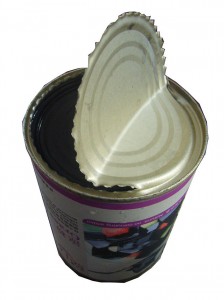Five Innovation Contests that Made Our Lives Easier
 For hundreds of years, innovation has been accelerated through prized-based competitions, inspiring inventors, artists, entrepreneurs and others to push their brains to the limits to create new ideas, concepts and opportunities. From the breakfast table to sea travel and international flight, innovation competitions have revolutionized our daily lives. Here are five innovation contests that have made our lives easier:
For hundreds of years, innovation has been accelerated through prized-based competitions, inspiring inventors, artists, entrepreneurs and others to push their brains to the limits to create new ideas, concepts and opportunities. From the breakfast table to sea travel and international flight, innovation competitions have revolutionized our daily lives. Here are five innovation contests that have made our lives easier:
Canned Foods
Concerned about keeping his armies fed and conscious of how malnutrition could decimate the ranks, Napoleon Bonaparte launched a competition for a new method to preserve food. Confectioner and Chef Nicholas Appert spent more than decade experimenting with ways to preserve foodstuffs. He succeeded by placing food such as jams, dairy products and vegetables in glass jars, sealing them and then placing them in boiling water. He was awarded 12,000 francs for his innovation. The technique caught on quickly and tin soon replaced the glass bottles.
Margarine
It’s 19th century France and butter is expensive. Emperor Louis Napoleon III wants a good-tasting butter substitute for his armies and for the country’s poor. So he follows the example of his uncle Napoleon Bonaparte and proposed a cash-based challenge. The contest was won by Hippolyte Mège-Mouriés who developed a butter alternative from beef tallow and skimmed milk. He was awarded 12,000 francs for his innovation.
Aviation
In 1919, New York hotel owner Raymond Orteig offered a $25,000 reward to the first person to fly non-stop from New York City to Paris or vice-versa. For five years, the contest attracted no competitors and so it was relaunched in 1925. Numerous attempts were made by aviators, and six people died in three separate crashes. The prize was eventually won in 1927 by Charles Lindbergh who flew solo across the Atlantic, although this wasn’t a requirement of the competition.
Navigation
Clockmaker John Harrison solved the problem of finding longitude at sea. His fourth marine timepiece, H4 was submitted in 1761 and qualified for the £20,000 prize offered by the British government to whoever could solve the problem.
Railways
Launched in 1829 by the Liverpool & Manchester Railway, this contest offered £550 for the person or company who could develop a locomotive weighing less than six tons and capable of pulling a load of 20 tons at ten miles per hour. Five engines were entered and the winner was “The Rocket”. It was built in 1829 by George Stephenson and was the only locomotive to successful complete the course set out for the Rainhill Trials.
There are dozens more innovation contests such as Premium for the Prevention of Smoke (1855), Wolfskehl Prize for Fermat’s Last Theorem (1908), The Breant Prize for Asiatic Cholera (1854) and Prize4Life (2006). You can read about them here, in a document compiled by KEI (Knowledge Ecology International).
Impact
Innovation contests and challenges continue to make an impact today. Even the most brilliant of enterprises has difficulties finding the next breakthrough products, so they look for meaningful ways of harnessing external creative sources.
Reader Comments
Very interesting post. Challenges can indeed be a great catalyst for innovation. The examples in this article remind me of a recent example of a challenge that delivered some innovative results; the call by the Bill & Melinda Gates Foundation for a new type of condom...
Posted by on August 26, 2014
Add your Comment
[LOGIN FIRST] if you're already a member.fields are required.
